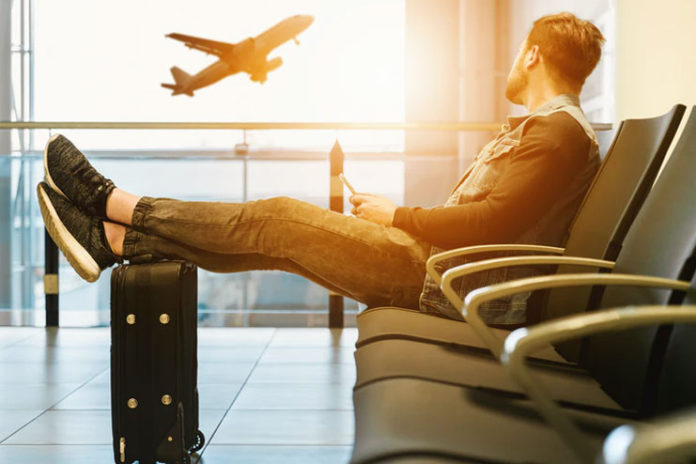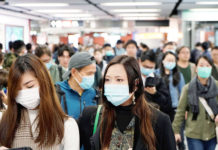You will travel after Covid-19 but chances are that it won’t be the same anymore. The impacts of Covid-19 has impacted the world and not for the short term. With many countries trying to get back to their “normal”, flights and trains have become operational again. But, with the virus likely staying for another 2 years, it is next to impossible to tell when the right time to travel again is.
The scale of the problems in the travel industry has changed drastically. Airlines have gone bankrupt, travel companies are conducting layoffs and several of the hotels across the world have been converted to quarantine centres or hospitals to suffice the growing demand.
When is travel likely going to recover?
At this point with the kind of uncertainty that still prevails, nobody has a concrete answer to exactly when travel is likely going to resume. Travel is likely going to recover in stages and the freedom to travel will depend on the country and the region you are in.
While domestic travel is likely going to start getting normal by October, international travels are still a matter of question at this point and will depend on the government and the restrictions that the government has on the travel.
With majority of the countries trying to stave off the second wave of infection, it is likely that international travel is not going to happen anytime soon.
“Travel and immigration – for work, study, seeking asylum – is going to be disrupted much longer than our daily lives, in a way unprecedented in our lifetimes,” said Prof. Lindsay Wiley who works at the American University Washington College of Law.
Several of the experts in the aviation and travel industry have clearly mentioned that it will take several years before the passenger demands return to what it was like in 2019.
Some of the countries which acted fast to contain the spread of the virus are now looking to build a bubble for the citizens to travel around without any grave restrictions. The first countries in the list of discussion are New Zealand and Australia.
When will tourism resume?
When it comes to travel, the one question that people likely have is of the prospects of tourism. Wit so many countries dependent on tourism specifically for their economy, a sudden stop to that is likely going to affect the people there.
As the countries are starting to ease the lockdowns to further kickstart their economies, all the eye are not on the international travel and how the same is likely going to resume to get people back to normal.
Some of the nations have decided on trying out the prospect of “travel bubbles”. Under these, the group of countries will no or minimal rate of infection will allow each other’s citizens to travel freely without any restrictions. For the rest of the countries will higher risks of the infection, quarantine is still intact.
While reports estimated the travel and tourism industry to be worth $700 billion by 2020, because of the Covid-19, it is down to $447 billion this year.
Europe, Baltics, New Zealand and Australia are some of the parts of the world which have been proposing guidelines to then resume international travel for tourism.
But, for gaining entry for a different country is likely that every single country will have to pass through all the guidelines that have been made out by them.
This could help contain the spread of the second wave of infection.
How will business travel be like?
It is not a new thing that one of the main impacts of Covid-19 has been on the business travel. People have been corresponding via digital means without the means to travel to a different country.
The Global Business Travel Association (GBTA) has shed some optimism for the business travel to likely get back on track sooner than later.
Scott Solombrino, GBTA CEO further stated saying that even with the business travel currently at a standstill, there is light at the end of the tunnel. The GBTA members are already planning the post Covid-19 travel plans and it is likely going to get better in 2020 itself.
According to their reports, majority of the domestic travel is likely going to resume within the next 2-3 months and expect majority of the employees to travel as per the protocols in the countries.
When it comes to the fate of business travel, one of the most crucial questions at the moment is to answer how comfortable the workers would be to travel to other countries.
The statistic showed that in March, 16% of the employees felt comfortable for travelling for business but the same has dipped to 11% in April, bringing down a massive hit.
Majority of the employees are still skeptical of the travel prospects. 92% of them said that they needed to witness a decline in the number of cases while 91% of the individuals reported that they want to wait till the government lifts the imposed restrictions.
Unlike the leisure travellers, the business travellers are looking for ways to get back to work and travel. The only struggle at this point is to let people feel comfortable again when it comes to crowded places like the airport lounge and aircraft.
Several of the airlines like Delta, Lufthansa, American and several others are blocking out the middle seat to create distance among the passengers.
Not just the airlines, even the hotels and hospitality sector are working rigorously to get things back on track. Hygiene and constant disinfecting is the latest priority to ensure the maximum precaution.
How are things going to change with respect to international travel post Covid-19?
You will travel, as we said before. But, things will be far from normal.
International travel is still an uncertainty at this point. And even after things do resume, the process is not going to be as you think it is.
Passengers would be expected to arrive 3-4 hours earlier, complete the process of checking and precaution before they are finally let into the aircraft.
So, what kind of changes can you likely experience?
Longer queue at immigration
If you were tired of the already long queue at the airports, imagine the airports that would be conducting swab tests and then letting their passengers into the plane?
The lines are going to be extremely long, especially in terms of immigration and international travel because of social distancing and because of the stages of precaution that the authorities are going to implement.
Just a passport might not suffice
If you are travelling from a country that is a hotspot for the Covid-19, it is likely that a simple passport won’t fetch you an entry into the country. The authorities are likely going to ask for an immunity certificate in case you have been infected before or you have gotten the vaccines done, once they are available.
Countries will only open their borders when it is safe enough to do so. This suggests that temporary visas will be handed out and the entry to the country will require more documentation.
Expenses won’t be the same
With the travel industry already badgered because of Covid-19, the last thing you can expect is a lower fare of the tickets. It is likely going to happen initially to generate more demand but by next year, it is likely going to skyrocket and might even come with expensive seasons specifically.
Seats will be limited, which again is one of the reasons behind the heightened costs that the airlines will charge.
Uneven recovery
What this means is that while one country is likely going to lift their lockdowns and restrictions, it is likely that another country won’t. So, the travelling, is not going to happen evenly. This means that there is not going to be a specific date when the entire world starts travelling internationally again.
It will be in steps and it will be gradual. So, that again is going to affect the overall travel yet again.
Packing will be different
While your essentials in the luggage will be the same, your few travel necessities will further include wipes and sanitisers which you likely didn’t pack before. Masks will become mandatory for every person, again making this a necessity that one can’t do without. So, all in all, what you pack for your journey is likely going to change as well.
Crude stares
With the kind of terror that Covid-19 has inflicted among the society, don’t be shocked when people give you judgemental stares when you try to just cough a little. People will run away from your side and even the authorities might ask you for a test, if things get rough. Realise for a fact that everyone is scared for their own safety so when someone gives you the stinky eye, it is not them being mean but secure.
Travel in the future after Covid-19 will notice a lot of changes. With the new “normal” in our lives, it is going to become extremely crucial for us to take over the changes in a positive way and find better ways to cope.















































